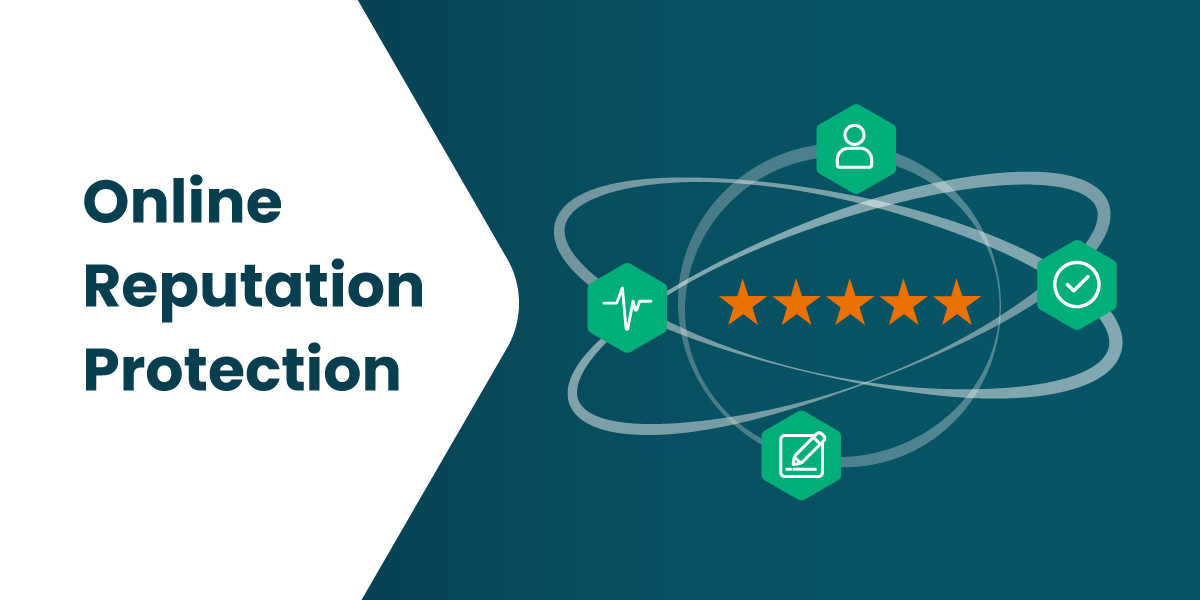Reputation Protection: Manage Your Online Standing in 5 Easy Steps
The perspective that the world holds of you or your business can be changed in an instant. An online reputation, whether for an individual or a company, can far-reaching influence consumer decision-making and overall perception of brand equity. Therefore, it is crucial to protect your online reputation vigilantly. In this comprehensive guide, we outline five easy steps to proactively guard and enhance your online image.
Understanding the Importance of Online Reputation
Your online reputation is a reflection of your credibility, trustworthiness, and expertise. It’s a critical component of your brand image that can attract or deter potential customers, partners, or employers. In the era of the internet, digital footprints are permanent, and one damaging review or negative news piece can have far-reaching repercussions.
When it comes to online reputation, it is essential to understand that it is not just about having a good image; it is about building and maintaining trust. In today's highly connected world, where information is readily available at the click of a button, people rely heavily on online reviews and feedback to make decisions. Whether it's choosing a restaurant for dinner, purchasing a product, or hiring a service provider, online reputation plays a crucial role in influencing these choices.
Imagine you are looking to hire a web developer for your business. You come across two candidates with similar qualifications and experience. However, one of them has a negative online reputation, with several clients complaining about missed deadlines and poor communication. The other candidate, on the other hand, has glowing reviews from satisfied clients who praise their professionalism and timely delivery.
Which one would you choose? Most likely, you would opt for the candidate with the positive online reputation, as it instills confidence and trust.
The Impact of a Negative Online Reputation
A poor online reputation can influence all aspects of your life or business. From lost professional opportunities to decreased customer trust and satisfaction, the ramifications can be devastating. Research even suggests a significant correlation between a company’s online reputation and its financial performance.
Consider a scenario where a restaurant receives a negative review on a popular review site. The review highlights issues with food quality and poor service. As a result, potential customers who come across this review may decide to dine elsewhere, leading to a loss in revenue for the restaurant. Moreover, the negative review may deter new customers from even considering the restaurant, impacting its overall reputation and long-term success.
It is not just businesses that are affected by a negative online reputation. Individuals, too, can face severe consequences. For example, a job seeker with a tainted online reputation, such as inappropriate social media posts or negative feedback from previous employers, may find it challenging to secure employment. Employers often conduct online background checks to gain insights into a candidate's character and professionalism, making a negative online reputation a significant hurdle to overcome.
Benefits of a Positive Online Reputation
On the other hand, a positive online reputation can have the inverse effect. It can attract potential customers, increase client loyalty, and even garner you favorable partnerships. It is a driving factor behind successful personal and business growth. Managing your online reputation is therefore in your best interest.
Having a positive online reputation can lead to numerous benefits. For businesses, it can result in increased sales and revenue as customers are more likely to trust and choose a company with a good reputation. Positive reviews and testimonials can act as powerful endorsements, attracting new customers and building a loyal customer base.
For individuals, a positive online reputation can open doors to new opportunities. Whether it's securing a job, getting accepted into a prestigious academic program, or building professional relationships, a strong online reputation can give you a competitive edge. Employers and recruiters are more likely to consider candidates with a positive online presence, as it reflects their professionalism and ability to maintain a good image.
Building a positive online reputation requires consistent effort and a proactive approach. It involves monitoring and responding to reviews, engaging with customers and followers on social media, and consistently delivering high-quality products or services. It is an ongoing process that requires dedication and attention to detail, but the rewards are well worth it.
Monitor Your Online Presence
The first step to protecting your online reputation is to monitor it. Keeping a close eye on what is being said about you or your business online enables you to manage negative feedback proactively and promote positivity.
Monitoring your online presence is essential in today's digital age. With the vast amount of information available on the internet, it is crucial to stay informed about how you or your business is being portrayed online. By regularly monitoring your online reputation, you can gain valuable insights into what others are saying and take appropriate action to maintain a positive image.
Setting Up Google Alerts
Google Alerts is a powerful tool that can help you keep tabs on your online presence. This service emails you when it finds new results that match your specified terms. You can set up alerts for your name, your company's name, or any relevant keywords.
By utilizing Google Alerts, you can stay informed about any mentions of your name or business across the web. This allows you to respond promptly to any positive or negative feedback, ensuring that you are actively managing your online reputation.
Utilizing Social Media Monitoring Tools
Social media is another major source of online reputation management. Plenty of online tools can help monitor your online reputation across these platforms, assisting in controlling the narrative around your brand.
With the widespread use of social media platforms such as Facebook, TikTok, and Instagram, it is crucial to monitor what is being said about you or your business in real-time. Social media monitoring tools provide you with the ability to track mentions, comments, and reviews, allowing you to address any issues promptly and engage with your audience effectively.
These tools also provide valuable analytics and insights into your social media performance, allowing you to measure the impact of your online reputation management efforts. By understanding how your brand is perceived on social media, you can make informed decisions to enhance your online presence.
Monitoring your online presence through tools like Google Alerts and social media monitoring tools is vital for effective online reputation management. By staying informed and proactive, you can protect your reputation and ensure a positive image in the digital world.
Optimize Your Online Profiles
Once you have an understanding of what is being said about you online, the next step is to ensure that both you and your business are presented in the best possible light.
Optimizing your online profiles is a critical aspect of managing your reputation. It involves strategically enhancing your website and social media accounts to rank higher in search engine results, thereby pushing down negative links and highlighting positive content. This process is commonly referred to as search engine optimization (SEO).
Importance of SEO in Reputation Management
Search engine optimization (SEO) plays a crucial role in managing your online reputation. By implementing effective SEO techniques, you can ensure that your website and social media profiles appear prominently in search results when someone searches for your name or business. The higher your online presence ranks, the more likely it is that positive information about you will be visible, overshadowing any negative content.
SEO involves various strategies, such as optimizing your website's content, metadata, and backlinks. By carefully selecting relevant keywords and incorporating them into your website's text, you can improve its search engine ranking. Additionally, building high-quality backlinks from reputable websites can boost your online reputation and credibility.
Tips for Optimizing Your Social Media Profiles
Creating robust and consistent profiles across all social media platforms is essential for shaping positive perceptions of you and your business. Here are some tips to optimize your social media profiles:
-
Create complete profiles: Fill out all the necessary information on your social media accounts, including your bio, contact details, and links to your website or other relevant online assets. This will make it easier for people to find and connect with you.
-
Use high-quality visuals: Incorporate visually appealing images and videos that reflect your personal brand or business. High-quality visuals can help capture the attention of your audience and leave a lasting impression.
-
Post regularly: Maintaining an active presence on social media is crucial for reputation management. Regularly posting relevant and engaging content not only keeps your audience informed but also demonstrates your expertise and commitment.
-
Engage with your followers: Interacting with your followers is an excellent way to build a positive online reputation. Respond promptly to comments, messages, and inquiries, showing that you value and appreciate their engagement.
-
Monitor and address feedback: Actively monitor your social media profiles for feedback, both positive and negative. Responding promptly and professionally to complaints or concerns can help resolve issues and showcase your commitment to customer satisfaction.
By implementing these tips, you can optimize your social media profiles and improve your online reputation. Remember, consistency and active engagement are key to maintaining a positive image in the digital landscape.
Create High-Quality, Positive Content
Producing high-quality, positive content is crucial to maintaining a desirable online reputation. The content you share paints a picture of who you are or what your business represents.
The Role of Content in Building Online Reputation
Content creation is integral to online reputation management. The more high-quality, relevant, and engaging content you produce and share, the higher degree of control you have over your online image. A well-curated content strategy can serve to overshadow any negative mentions over time.
Strategies for Creating Engaging Content
Start by understanding your audience’s needs and interests. Use a variety of content formats such as blog posts, videos, podcasts, and infographics to keep them engaged. Involve professionals in content creation and optimization to ensure maximum reach and impact.
Respond to Negative Reviews and Comments
Even with stringent monitoring and carefully curated content, you may occasionally find negative feedback and reviews.
The Art of Handling Negative Feedback
Reacting to negative reviews with tact and swiftness is key to handling such situations. Always acknowledge the feedback, apologize where necessary, and assure your commitment to improving customer satisfaction.
Case Studies of Effective Negative Review Responses
A look at successful examples of online reputation management shows that effective responses can turn a negative review into a relationship-building opportunity. Demonstrating that you value and respect all feedback creates a more human and relatable image for you or your business.
Engage Constantly And Consistently
The final step in protecting your online reputation involves continuous engagement. Building a positive reputation isn't a one-off task, but a long-term commitment to transparency, respectful engagement, and quality.
Conclusion
Protecting your online reputation is a strategic process that requires ongoing attention. The benefits are well worth the effort, with a positive reputation broadening opportunities and contributing to personal and business success. Implementing the steps discussed provides a strong foundation for successful online reputation management.

 Drive More Visibility, Traffic, and Sales
Drive More Visibility, Traffic, and Sales
